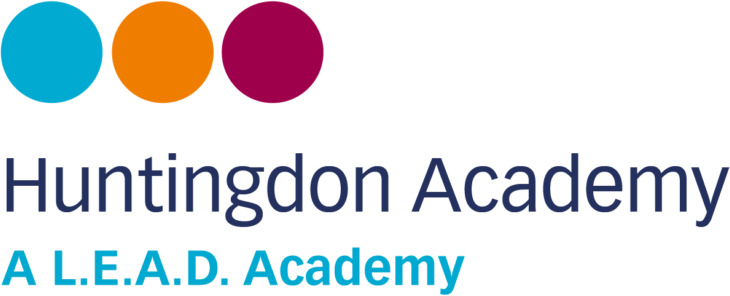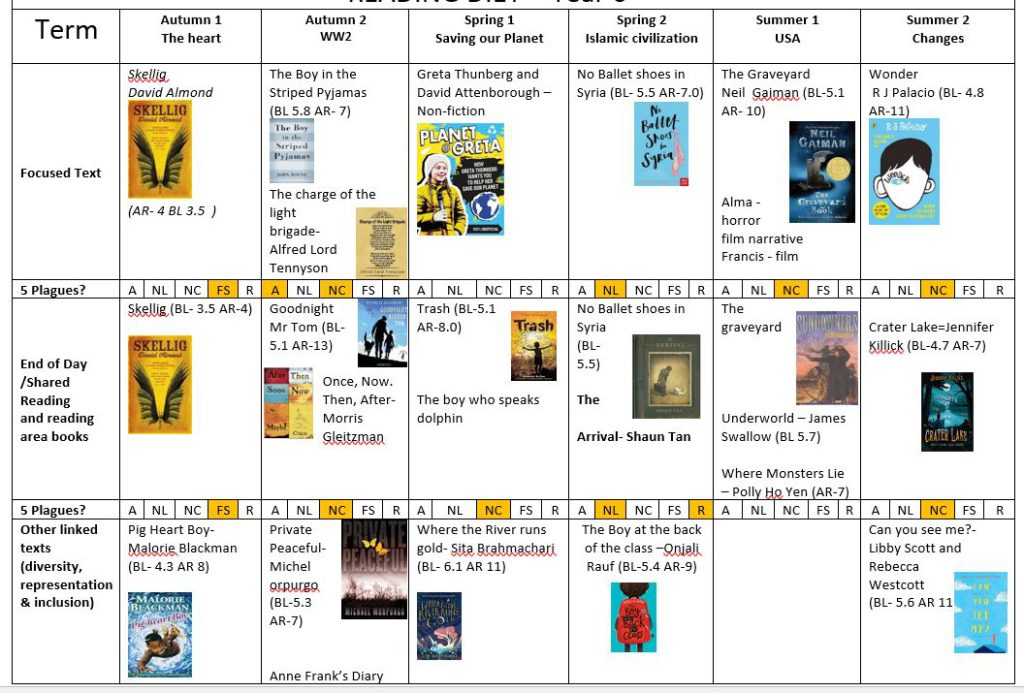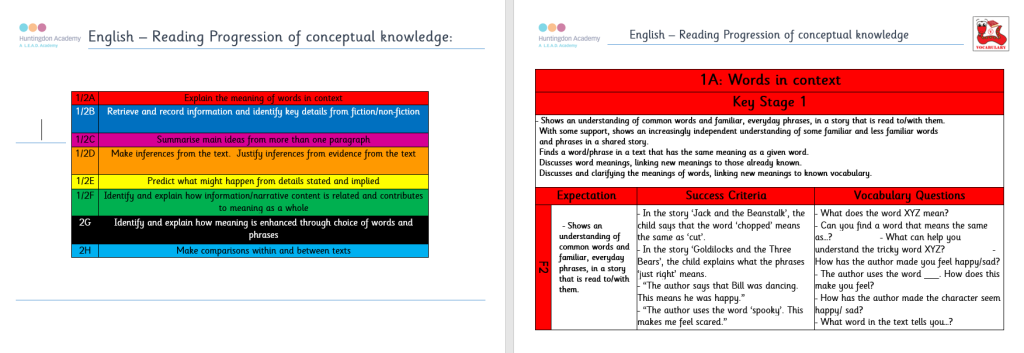Welcome
Welcome to reading at Huntingdon. On this page you will find out the key information about the leadership, design and implementation of our reading provision.

Reading at Huntingdon is lead by Rebecca Want, who also oversees our overall English provision along side our writing lead, Louise, and our phonics lead, Fern. Rebecca believes that reading should be at the core of a schools curriculum design. She is an avid reader of both adult and children’s fiction with a keen interest in making the reading curriculum in our school both aspirational and inspirational. Her aim is for every child to feel represented in the reading provision through the breadth our careful selection of authors, genres and themes.
Our link governor for reading is Stacey Costillo.
The reading ambassadors are; Silate, Lucy, Joseph & Isabella
Subject Overview
At Huntingdon academy, we intend to promote and encourage a lifelong enjoyment and love of reading. Through the implementation of our reading curriculum we intend to equip pupils with the reading skills that enable them to know more, remember more and understand more; with increasing independence. We aim to create confident, independent readers and prepare pupils for the next stages of their education. We intend to provide regular opportunities for pupils to read independently, out loud and to be read to throughout the school day – developing a broad range of reading skills that can be applied to a wide range of reading text types and genres across the whole curriculum. We aim to use reading as a ‘passport to experiences, places and times’ which many of our pupils may never experience. We are committed both in time and financially to providing pupils with a range of resources to stimulate their desire to read and we will use our learning environments to inspire a love for reading too.
At Huntingdon Academy, we understand the importance of parents and carers in supporting their children to develop reading skills so, we endeavour to develop a home-school partnership which enables parents and carers to understand how to enhance the skills being taught in school. Collectively, we share the determination for every pupil to learn to read, regardless of their background, needs or abilities. All pupils, including our weakest readers, make sufficient progress to meet or exceed what is expected of their age.
National Curriculum Link
Our reading curriculum is underpinned but the National Curriculum Programme of Study for Key Stages 1 and 2 and the DfE Reading Framework.
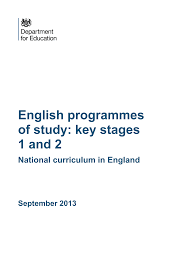
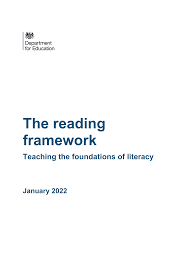
Reading Pedagogy
In order to give the subjects that we teach the credence that they deserve, we need to consider how we teach each subject discipline. The implementation of our reading curriculum addresses 8 essential principles.
| Shared reading ethos and culture | Text selection | Reading for pleasure | Organisation of the teaching of reading |
| Phonics | Comprehension | Assessment | Support for struggling readers |
Reading is our priority. There are many opportunities every day for our children to learn to read and read to learn. These opportunities include but are not limited to:
- daily phonics lessons in EYFS, KS1 and those that still require instruction in KS2
- daily whole class reading lessons in years 1 – 6
- daily reading for pleasure (story time EYFS & KS1, PALS in KS2)
- daily ‘book talk’
Text Selection
At Huntingdon, we aim for our reading canon to enable EVERY pupil to feel represented and enable all pupils to; educate, feel empowered, understood, to embrace internal debate and to generate high ambition for themselves, and our world. Our reading canon ensures pupils from Nursery through to Year 6 encounter a diverse range of books spanning across a broad range of themes and text types. These cover Doug Lemov’s Reading Reconsidered principles of coverage; Archaic Language, Non Linear Time Sequences, Misleading & Complex Narratives, Figurative Texts and Resistant Texts.
Planning
Opportunities for reading at Huntingdon are facilitated across the curriculum every day. We also provide a minimum of 2 focussed opportunities, daily, to the explicit development of reading.
In EYFS and KS1 this is through daily phonics lessons every morning, reading skills after lunch and quiet reading / story time at the end of the school day. A planning example for reading skills for KS1 can be found below. Stories for our end of day sessions are specifically chosen based on links to class themes, cohort context or interest & current affairs.
In KS2 pupils have a daily reading skills lesson for a minimum of 30 minutes and an end of day reading session based on the ethos of PALS (peer assisted learning strategies). Reading skills lessons are planned for using the class novel for the term or similarly to KS1, linked to themes, contexts, current affairs or interests of pupils. PALS novels are chose by the children to feed their reading for pleasure.
INSERT SNIPPING TOOL OF PLANNING PROFORMA – KS1 KS2
In EYFS and KS1 our primary focus in our pupils capacity to word read, moving to a more explicit focus on comprehension skills and the domains for reading in KS2. The anagram VIPERS is used as one of the support tools teachers use to ensure a varied a comprehensive diet in their delivery of reading skills. The conceptual knowledge map below outlines how teachers differentiate pitch and expectations of the reading domains across school.
Reading Intervention
We rigorously assess the progress of each child on their journey to becoming effective, fluent readers. Any pupil not meeting their age related expectations or accelerated potential are quickly identified, each half term at a minimum, with a clear action plan established. This ensures that all pupils “keep up not catch up” and that no child is left behind. Families are informed through the reading diary and verbal communication, if their child is in need of reading support. They are advised how they can best support their child at home.
School interventions include:
- repeat reading
- daily reading with a trained adult
- echo reading & peer support
- focus groups within reading lessons
- pre-reading opportunities
- additional phonics intervention (where appropriate)

